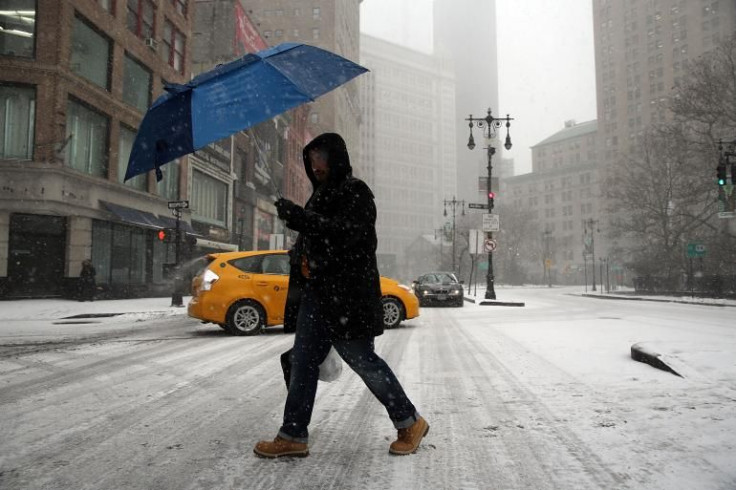Winter Storm Juno, Or Whatever It’s Called, Raises Flurry Of Keyword Questions For News Editors

Like any other for-profit TV network, the Weather Channel enjoys pumping up its big-name celebrities, and it did a lot of pumping up this week with one of its biggest celebrities in recent memory, a raging East Coast snowstorm it nicknamed “Juno.”
By Monday morning, Juno was a household name, with #Juno2015 emerging as one of the top trending topics on Twitter.
And yet despite its newfound fame, no other major weather agency endorses the practice of naming winter storms. In fact, most meteorologists are dead-set against it. The U.S. National Weather Service (NWS) has long condemned the idea, saying such nicknames serve to confuse “media spin” with real science. Winter storms, the agency said in 2012, are “very different” from hurricanes.
This puts news outlets in a peculiar situation, especially in the age of Google, when headlines with the most popular keywords are likely the ones that will find the biggest audiences. Do news websites heed the recommendations of weather experts and the government entity tasked with informing the public on weather-related matters? Or do they cash in their keywords and offer low-hanging fruit to the gods of SEO?
Not surprisingly, many editors at legacy publications prefer to err on the side of convention. “We don't use the storm names, other than the traditional NWS hurricane ones,” said Philip B. Corbett, who oversees the style manual for the New York Times.
It’s a rule that was echoed last year by the Associated Press, which reminded readers in a Twitter chat that, “We do not use private companies' winter storm names.”
And why should they? The nicknaming scheme has been repeatedly called out as little more than a marketing tactic by the Weather Channel, a subsidiary of the Weather Company that has been seeking to reinvent itself for a digital world. Why be an accomplice to another company’s ploy for free PR?
But for digital-news natives weaned on keywords and social sharability, the issue is less cut-and-dried. “We prefer to use these storm nicknames sparingly and generally just refer to it as a winter storm/snowstorm/blizzard,” said Emmy Jo Favilla, copy chief at BuzzFeed. “[B]ut I wouldn’t say we have an official position or rigid rule on this.”
In fact, over the last few days, “Juno” has been cited quite frequently in BuzzFeed headlines, as it has in headlines at many digital-news outlets, including IBT Media. As Favilla pointed out, the Twitter account for the BuzzFeed Style Guide recently tweeted a capitalization rule for storm nicknames, reminding writers that “Winter Storm Juno” is a proper noun.
At the same time, some news outlets are pushing back against the practice. At FiveThirtyEight, you’ll find at least one article with “Juno” in the headline, but only for the purposes of criticizing those who use it.
The Weather Channel began naming winter storms in 2012, but the decision attracted almost instant criticism from meteorologists. Joel Myers, founder and president of AccuWeather Inc., said the “unilateral initiative” is simply not supported by science. “We have explored this issue for 20 years, and have found that this is not good science and importantly will actually mislead the public,” Myers told AccuWeather at the time.
Asked about the criticism, David Blumenthal, a spokesman for the Weather Channel, referred International Business Times to a recent article by Tom Niziol, a TWC winter weather expert, who discussed the company’s rationale for naming winter storms. Niziol, who was not available to comment Tuesday, said in the article that the storm naming is a “continual process that includes a daily hemispheric map briefing among the Global Forecast Center’s team of meteorologists at the Weather Channel.”
If broader scientific consensus counts for anything, however, few will remain convinced.
In the meantime, as many in the New York City area learned on Tuesday morning, “Juno,” or whatever, did not pack the “historic” wallop some had expected it to, at least not in New York. In the end, it was a lot of snow and a lot of overpreparation -- and a lot of clicks.
Correction: An earlier version of this story incorrectly stated that Weather Channel VP of digital content Neil Katz initiated the naming of winter storms. In fact, the practice predates his working there.
Christopher Zara is a senior writer who covers media and culture. Got a news tip? Email me here. Follow me on Twitter @christopherzara.
© Copyright IBTimes 2024. All rights reserved.






















